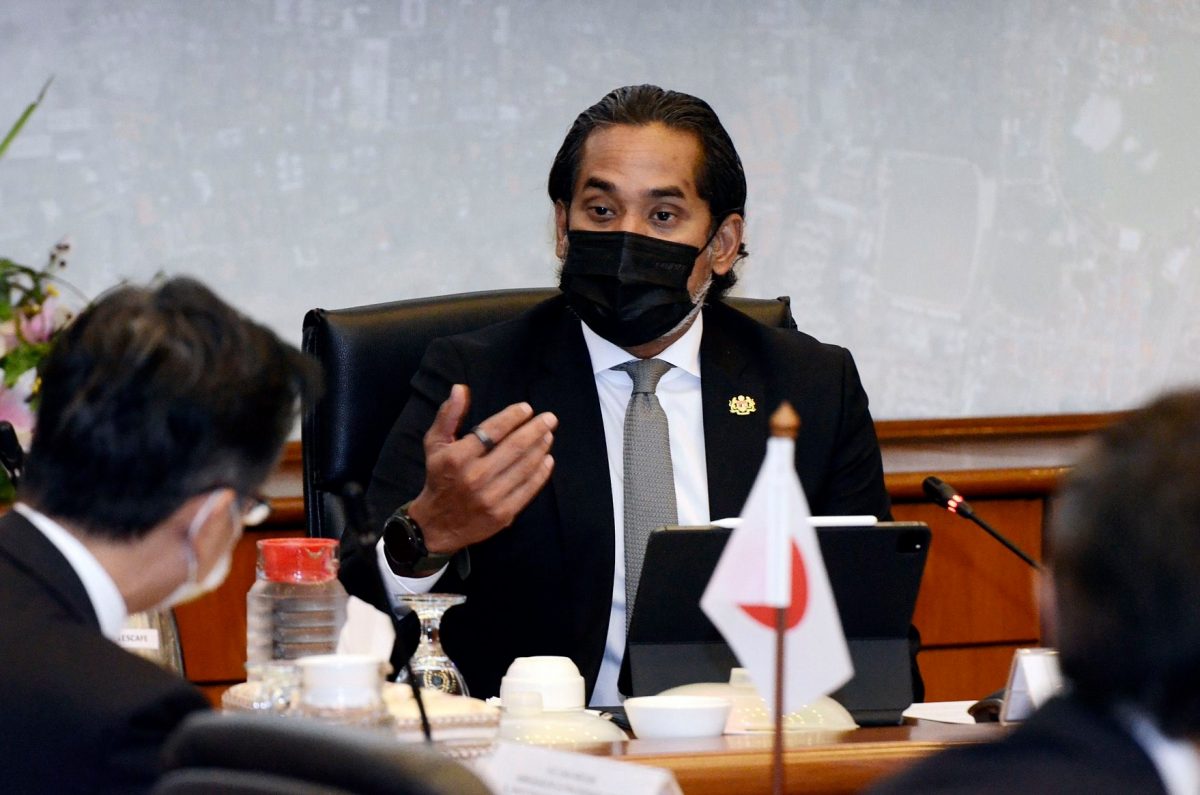KUALA LUMPUR, March 10 — The Covid-19 Immunisation Task Force (CITF) is considering implementing a drive-through vaccination site, Khairy Jamaluddin said.
The vaccine minister was responding to former Prime Minister Najib Razak’s Facebook post, who questioned the government about Malaysia’s slow vaccination rate. Najib suggested for the government to consider drive-through vaccination sites like in the United States (US) and Indonesia.
Khairy assured Najib that the paperwork on the drive-through vaccination programme has already been presented by the Academy of Science Malaysia (ASM).
“So don’t worry, the plan is already there. Only it needs to be given special details in terms of logistics and effects of AEFI (Adverse Effects Following Immunisation) as each Covid-19 vaccine has a different handling protocol,” Khairy said.
The US Centers for Disease Control and Prevention (CDC) has outlined a guideline for drive-through vaccination clinics. According to CDC’s guideline, drivers have to wait 15 minutes before leaving the clinic area, post-vaccination, because fainting is possible after vaccination. Furthermore, adequate parking space should be available for drivers to wait for 15 minutes.
Barron County in the US started their Covid-19 vaccination drive on March 5. Meanwhile, transport company Grab has partnered with the Indonesian government and medical app Good Doctor, to open up drive-through vaccination centres in Bali to inoculate their citizens with the Covid-19 vaccine.
Houston had also opened up drive-through vaccination sites at the George Bush Intercontinental Airport as well as at the Delmar Stadium.
Khairy also added that Malaysia’s average daily vaccination rate is higher than Singapore.
The science, technology and innovation minister said that as of March 1, Singapore has administered 545,039 doses within 53 days of their vaccine rollout, which averages to 9,906 doses per day. On the other hand, Malaysia administered 12,797 doses per day within 13 days as of March 8.
“If we take into account the number of days, it turns out that the average daily vaccination in Malaysia is higher than Singapore,” the minister of science, technology, and innovation said.
Singapore, however, has a much higher vaccination rate per population than Malaysia. On March 8, Singapore administered about 0.2 daily doses per 100 people, more than triple Malaysia’s 0.06 daily doses per 100 population, based on a seven-day moving average.
Khairy said that the daily vaccination target of 160,000 doses administered is for Phase Two and Three of the National Covid-19 Immunisation Program (PICK), when there will be more vaccination sites as well as more vaccinators.
“As I announced earlier, we will receive around one million doses of the vaccine alone in the first quarter of this year. Injection rates will increase as we enter the second quarter of 2021 when more vaccine types are NPRA (National Pharmaceutical Regulatory Agency) approved and vaccine deliveries from suppliers will become more frequent.”
He pointed out that Malaysia would be able to administer 160,000 doses daily when people infected in Covid-19 clusters, such as prisons and workplaces, are vaccinated. Khairy did not specify when these groups would receive vaccines.
Besides that, Khairy, in his response to Najib who claimed that the government had made a U-turn in finally involving private health centres for PICK, clarified that the government had always planned to rope in private health care providers into the inoculation drive.
Khairy also said that the government has not objected to any parties purchasing their own Covid-19 vaccines from any manufacturers.
“However, as for now, most of the vaccine manufacturers are only negotiating with the government,” Khairy added.
“I would also like to state that any type of vaccine to be used in Malaysia must be approved by the NPRA. I understand, so far no application has been received by the NPRA from the private sector to register any type of vaccine.”
While there is no public attempt yet by any private health care provider to register a Covid-19 vaccine outside the public programme in Malaysia, Pharmaniaga Bhd has previously announced that it planned to sell some of its Sinovac doses to the private sector. NPRA has already given conditional approval to Sinovac’s Covid-19 vaccine.
Solution Biologics, the distributor of CanSino’s vaccine, has also previously expressed plans to supply private health care providers, besides selling 3.5 million doses to the Malaysian government.








